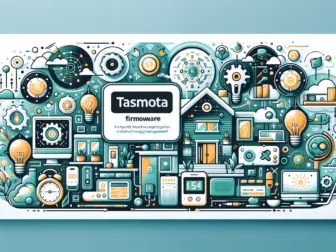Tag - IoT customization
Blog , March 25, 2024 , automation, device integration, energy management, firmware benefits, iot, IoT customization, smart Home, Tasmota firmware
The Future of IoT Customization: Tailoring Connected Devices to Meet Individual Needs
In today’s fast-paced world, the Internet of Things (IoT) has become an integral part of our daily lives. From smart homes to wearable devices, IoT technology is revolutionizing the way we interact with the world around us. One of the key trends shaping the future of IoT is customization – the ability to tailor connected devices to meet individual needs and preferences.
Customization in the context of IoT refers to the process of designing and developing connected devices that are personalized to the specific requirements of the user. This can include everything from the design and functionality of the device to the way it interacts with other devices in the IoT ecosystem. The goal of customization is to create a seamless and intuitive user experience that meets the unique needs of each individual.
One of the main drivers behind the push for IoT customization is the growing demand for personalized technology solutions. As consumers become more tech-savvy and discerning, they are looking for products that not only meet their basic needs but also reflect their personal preferences and lifestyle choices. Customized IoT devices allow users to have greater control over their technology and create a more personalized experience.
Another factor driving the trend towards IoT customization is the increasing complexity of the IoT landscape. As the number of connected devices continues to grow, users are faced with the challenge of managing multiple devices and ensuring they work together seamlessly. Customization allows users to tailor their devices to work together in a way that makes sense for them, simplifying the user experience and enhancing the overall functionality of the IoT ecosystem.
One of the key benefits of IoT customization is the ability to enhance the user experience. By tailoring connected devices to meet individual needs, users can enjoy a more intuitive and personalized interaction with their technology. Customized devices can also help users achieve specific goals or tasks more efficiently, making their lives easier and more productive.
From a business perspective, IoT customization offers a range of opportunities for companies to differentiate themselves in a crowded marketplace. By offering personalized IoT solutions, companies can attract and retain customers who are looking for products that meet their unique needs. Customization also allows companies to develop new revenue streams by offering premium services and features that cater to specific user preferences.
As the IoT market continues to evolve, we can expect to see a growing emphasis on customization as companies strive to meet the demands of an increasingly diverse and discerning consumer base. By tailoring connected devices to meet individual needs, companies can create a more engaging and personalized user experience that sets them apart from the competition.
In conclusion, the future of IoT customization looks bright, with personalized connected devices playing a key role in shaping the way we interact with technology. By tailoring IoT devices to meet individual needs, companies can create a more personalized and intuitive user experience that enhances the overall functionality of the IoT ecosystem. As consumers continue to demand more personalized technology solutions, customization will become an essential strategy for companies looking to differentiate themselves in a competitive market.
